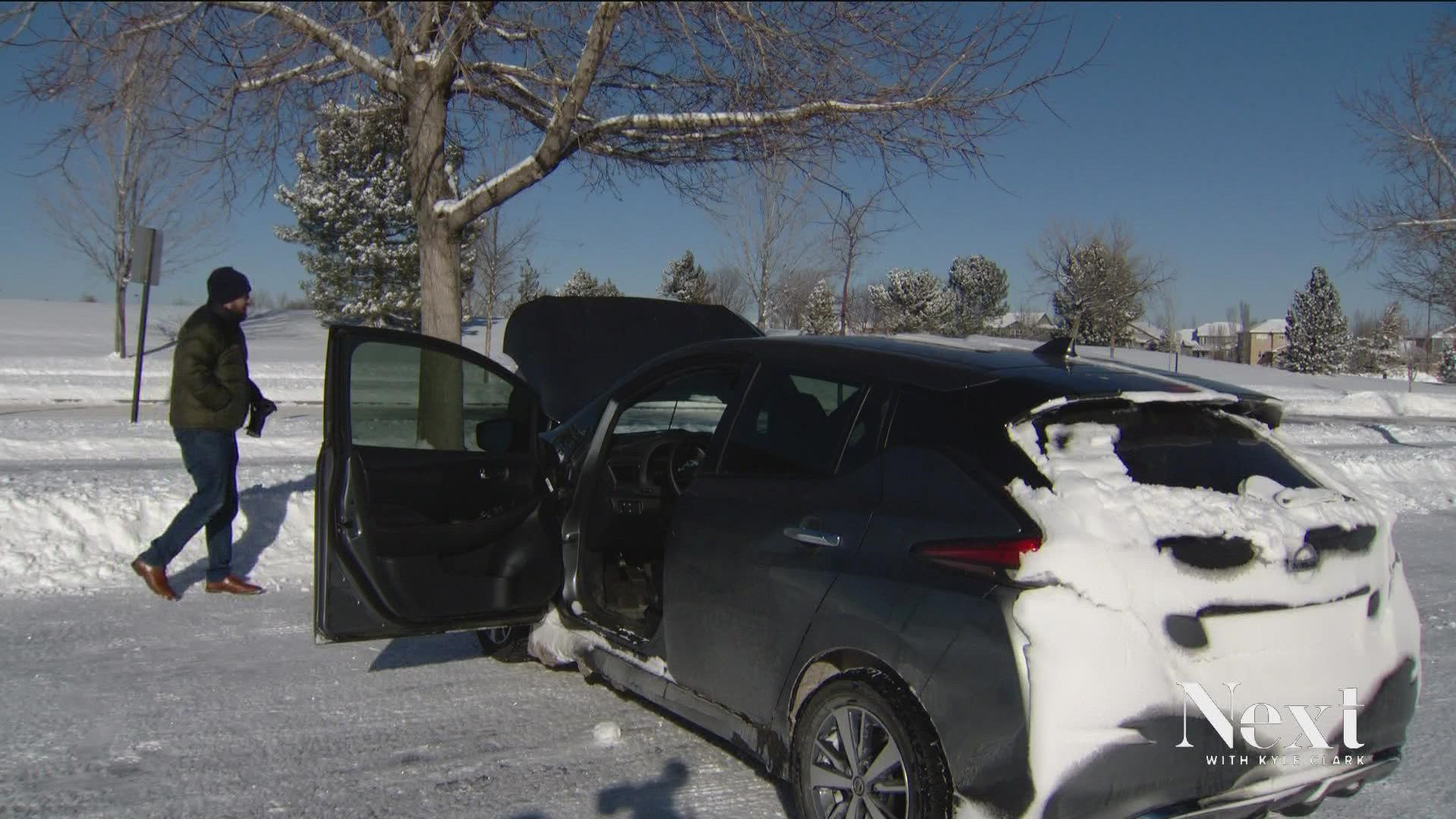BROOMFIELD, Colo. — Marlene Strickland and her husband Les decided to switch to an all EV household this year.
Strickland said that she enjoys her Ford Mustang Mach-E in cold weather, because she can warm the car up without violating any puffer laws and with the garage door down.
She said it also handles better in the snow because of the weight of the battery.
“(In the cold) the range does drop about 30 percent,” Strickland said. “But if you think about your daily average drive, you’re going to the grocery store, you’re running errands, you’re going to work.”
She said a friend at work was asking about whether an E.V. would be a good option driving back from the mountains in ski traffic.
“If you’re stopped in traffic, the only thing your battery is doing is keeping the car warm, your seat heaters,” she said. “It’s using very little battery.”
Nigel Zeid, a former EV salesman who now runs a company promoting electric vehicles said the reason the range diminishes is because of the battery.
“Certainly it slows down,” Zeid said. “Just like your phone will lose more charge if you left it out now…or a flashlight battery.”
“It’s a chemical reaction. So it slows down how fast the electrons can move within the battery.”
Zeid was testing his E.V. in Thursday’s cold temperatures and said it was performing well.
“You could lose on a day like this possibly 20 percent of your range. But the key with it…most of us being just commuters…we’re doing about 40 to 50 miles a day and you’ve got a car with a 250 mile range. Even if you lose 50 miles of that you’ve still got more than enough charge to do what you want to do,” he said.
SUGGESTED VIDEOS: Next with Kyle Clark

